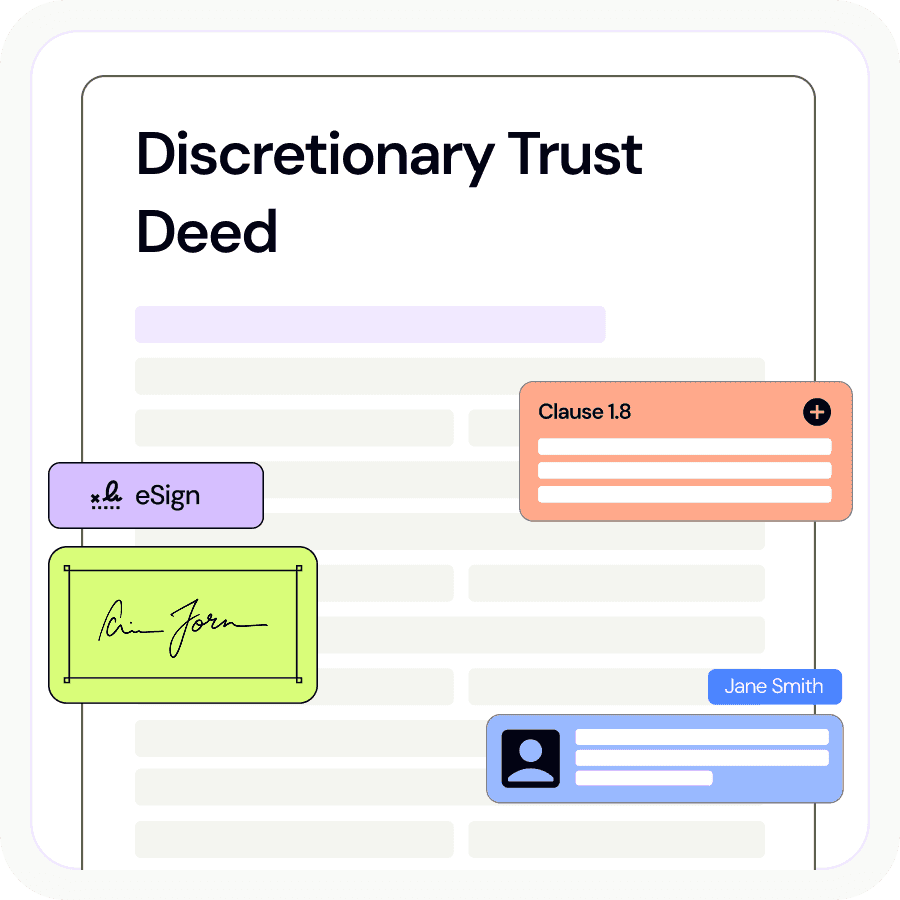Becoming trustee confers important rights, powers and duties upon you in order to protect the interests of beneficiaries. However, you also have certain rights when fulfilling your duties. In this article, we’ll outline what your rights are as a trustee.
Trustees
A trustee is the entity which holds the trust property. There can also be more than one trustee of a trust. Further, the trustee can be a person or a company. In either case, the trustee has to be capable of holding trust property in their own right. Trustees owe the following duties to beneficiaries:
- To preserve trust property
- Acting in good faith
- Loyalty to beneficiaries
- Impartiality
- Keep accurate records and information
What are the Rights of a Trustee?
Along with duties, trustees also have rights. These are usually set out in the Trust Deed.
1. The right for reimbursement
If you are a trustee and have had to incur some costs and expenses in the proper administration of the trust, you have the right to be reimbursed. This burden must be equally distributed amongst the beneficiaries. You can also have recourse to the trust property. It’s worth noting in regards to this right that:
- The indemnity must be reasonable and must have properly incurred in the course of your duties as trustee;
- If you are sued in your capacity as a trustee, you can claim your conduct as an incident of administration and you can be reimbursed for your legal fees
- You have the right to pursue the beneficiaries personally for reimbursement for costs and expenses.
2. The right to seek advice from the court
As a trustee, you most likely have the statutory right to seek help from the court on the proper administration of the court, except in the Northern Territory and Tasmania. In these cases, the role of the court is to determine for the trustee what should happen to protect and maintain the best interests of the trust.
3. The right to be relieved from a breach of trust
In all Trustee Acts in Australia, they empower the court to relieve you as a trustee from liability for breaches of a trust only if you acted reasonably, honestly and you ought fairly to be excused. An example is section 85 of the Trustee Act 1925 (NSW).The onus of proof lies on you as trustee, and you’ll need to satisfy the court that you acted:
- In good faith and for the welfare of the trust;
- Acted in the best interest for the trust and not for your own or any other trustee’s interest; and
- That your acquittal not only grants you as trustee relief but also the beneficiaries.
4. The right to a contribution claim
If you as a trustee incur losses due to breach of trust, you can hold all co-trustees jointly and severally liable to help recuperate the costs. You can exercise this right even if you are solely responsible for the loss, as the court holds the opinion that even if you are a passive trustee, your inactivity has permitted the culpable trustee to breach the trust.
If you are an innocent trustee who has acted reasonably and have had a contribution claim made against you, you may be entitled to an indemnity if the defaulting trustee has kept trust property or has personally benefited from the breach.
Conclusion
As a trustee, you are granted many rights from the trust instrument, statute and court orders. If you need further clarification on what rights you posses through your position as trustee, or feel you need to enforce your rights in your current circumstances, it is recommended to contact a estate planning lawyer.







